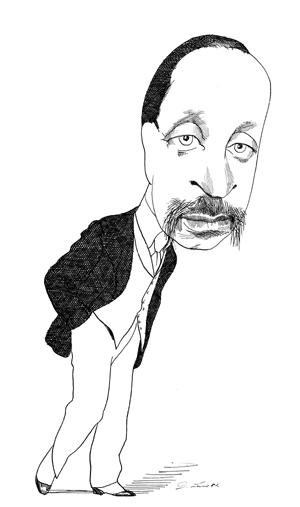In response to:
Letters from the Heights from the December 21, 2006 issue
In his review of the Rilke–Andreas-Salome correspondence, John Banville says that he uses the old J.B. Leishman translations “not because they seem the most faithful…but simply because they are the ones through which…I first came to the [Rilke] poems.” This autobiographical note has its own interest but the translations are literary treason. For instance, here is Leishmanized Rilke (from the last Rilke poem, “Komm du, du letzter”):
…the wood no longer can abjure
agreement with that flame which you’re outthrowing.
My version of Rilke’s last poem is hardly up to the original, but it is in a language which is recognizably English.
Come, you, you the last one, whom I recognize,
incurable pain within the web of flesh.
As my mind burned, you see I burned
in you; the wood that long resisted
the flame you feed. Now I nourish you and burn in you.
My mildness becomes in your fury
a fury out of hell, not here.
Totally pure, totally unplanned, free of the future,
I climbed on the tangled pyre of suffering,
certain of never getting anything back
for this heart whose reserves were gone.
Am I still the one who, unrecognized, burns?
I bring no memories here.
Life, life. To be outside
While I’m burning.
No one knows me.
Richard Stern
Chicago, Illinois
To the Editors:
For readers unable to read Rilke’s poem in the December 21, 2006, issue, the old Leishman translation may lead them to wonder why Rilke is considered one of the great twentieth-century poets. I’ve therefore attempted my own version. Like all translations, it does violence to the original. But your readers deserve a rendering that comes perhaps a bit closer to the poet’s meaning.
COME THEN, YOU LAST ONE…
Come then, you last one I acknowledge,
pain in this fleshly web beyond relief:
just as I burned in spirit once, I burn
in you; the wood has long resisted
to accept the flame that flares,
and now I feed and burn in you.
Enraged, my earthly mildness turns
into a hellish wrath that’s not from here.
Completely pure, completely free of future plans,
I climbed this crazy pyre of pain,
certain not to gain provisions for my silenced heart.
Is it still me who burns unrecognizably?
I drag no memories into the flame.
O life, my life: to be outside.
And I in flames. None know me here.
John Friedmann
Vancouver, British Columbia
John Banville replies:
Rilke is one of those poets whose admirers are convinced that it is to them alone that he speaks, and that they alone can hear the true voice. I applaud Mr. Stern’s and Mr. Friedmann’s attempts to render “Komm du” but I cannot see that they are much of an improvement on Leishman. Rilke’s late work is knotted and dense, and any rendering into another language of these final poems is bound to fail, however honorably. The finest translation of “Komm du” that I know of was published in the Times Literary Supplement in December 1975 accompanying an essay on Rilke by Walter Kaufmann:
You are the last I recognize; return,
pain beyond help that sears the body’s cells:
as I burnt in the spirit, see, I burn
in you; the wood, that for so long rebels
against the flame you kindle, comes of age;
behold, I nourish you and burn in you.
My earthly mildness changes in your rage
into a rage of hell I never knew.
Quite pure, quite planless, of all future free,
I climbed the stake of suffering, resolute
not to acquire what is still to be
to clad this heart whose stores had become mute.
Is it still I that burns there all alone?
Unrecognizable? memories denied?
O life, o life: being outside.
And I in flames—no one is left—unknown.
Though the translations are unsigned, it can be assumed they are by Kaufmann, who was such a sympathetic reader of Rilke, “one of the greatest poets of all time,” as he wrote in the opening sentence of the TLS article. The untitled German text follows:
Komm du, du letzter, den ich anerkenne,
heilloser Schmerz im leiblichen Geweb:
wie ich im Geiste brannte, sieh, ich brenne
in dir; das Holz hat lange widerstrebt,
der Flamme, die du loderst, zuzustimmen,
nun aber nähr’ ich dich und brenn in dir.
Mein hiesig Mildsein wird in deinem Grimmen
ein Grimm der Hölle nicht von hier.
Ganz rein, ganz planlos frei von Zukunft stieg
ich auf des Leidens wirren Scheiterhaufen,
so sicher nirgend Künftiges zu kaufen
um dieses Herz, darin der Vorrat schwieg.
Bin ich es noch, der da unkenntlich brennt?
Erinnerungen reiß ich nicht herein.
O Leben, Leben: Draußensein.
Und ich in Lohe. Niemand der mich kennt.
This Issue
March 29, 2007




